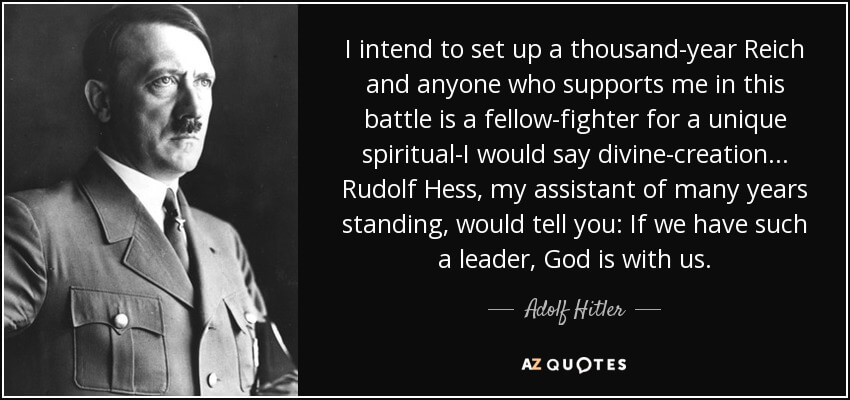Chapter XVIII: The Psychological Interpretation of Culture and History
|
|||
Hitler said, “Men come and men die, but this community shall last forever.” It was the German nation—the community—that would live forever, which is why the individual was devalued in Nazi totalitarianism. Men come and go. They live and die. How depressing! But the “community”—the nation—will “live on” after individuals die. The best definition of a nation is that it is a symbol of immortality. This is why nationalism is such a powerful religion: it contains the promise of eternal life. “Our buildings,” Hitler declared, “are arising in order to strengthen the National Socialist State.” Since “we believe in the eternity of this Reich, these works of ours will also be eternal.” Buildings, as forms of culture, exist separately from human beings. These “objective correlatives” of human endeavor potentially have a longer life span than individual human beings (e.g., the pyramids, or the ruins of ancient Greece). The essence of Hitler’s Nazism lay in the projection of the self into the nation. The nation—conceived by Hitler as an actual organism, a real body politic—would live on, even though individuals died. Nazism was devotion to this idea of an immortal body. In the name of the immortal body politic, the lives of individuals could be sacrificed. Most of us conceive of countries—with their “national life”—as constituting a separate realm of existence. Events occurring “out there” seem more significant than events occurring within our own lives. We feel an irresistible attraction to this “national life.” We seek to relocate our personal existence within this immortal space. National life is the stage or platform upon which “history” occurs. Ordinary individuals die, pass away, and are barely remembered. Those who find a place in the “history” books seem to have a different fate. Their lives become bound to the immortal body politic. People who participate in public life strive to become part of “history.” Those who strive—but fail—go into the “dustbin of history.” People who make a small contribution or impact become a “footnote” to history. Whereas someone who kills a President—such as Lee Harvey Oswald—“live on” in the history books. Hitler, of course, has achieved his wish for cultural immortality. He is part of the immortal body of history. He will “go down” in history as one of the greatest mass-murderers of all time. |
